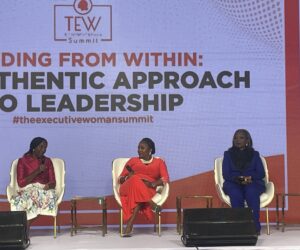
Nobody prepares you for how lonely adulthood can get. One minute, you’re in university surrounded by your best pals, and the next, you’re deep in the 9–5 cycle, realising the only people you talk to every day are your colleagues.
Somewhere between back-to-back meetings, team lunches, and gossiping about the boss’s new car, workplace friendships have become the relationships that hold us together. And honestly? That’s okay.
How the office becomes your social circle
I’ve come to realise that my closest friends these days aren’t the ones I grew up with, they’re the ones I share Google Docs with. They’re the ones who know when I’m stressed just by the tone of my Slack messages, share snacks with me during long meetings, or send memes during a boring Google Meet.
We might not hang out every weekend, but they’re the people who get it.
It’s funny because I used to think office friendships were shallow and shouldn’t be encouraged. That changed when I met Olajumoke, a former colleague who practically became my anchor.
We started bonding over our shared frustration with work, but it quickly turned into something deeper. She became the person I vented to about life outside work, the one who’d notice when I hadn’t eaten, and who’d always say, “call me when you get home!” after we parted ways.
When she eventually left the company, it felt like a breakup. That’s when it hit me that these friendships might start at work, but their impact doesn’t end there.
And really, it makes sense. Work takes up so much of our lives that it naturally becomes the centre of our social world. We spend 8 to 10 hours a day at the office or working from home, sometimes more. So, with so much shared time, it’s only natural that we bond with the people around us. They see sides of us that our families might never notice.
Why workplace friendships hit differently
These friendships are built on the shared struggle of surviving Monday meetings, dealing with annoying clients, complaining about HR’s latest email or gossiping about a suspected office romance. They’re also built on small, genuine kindnesses, like covering for someone who’s late, sharing food, and sending a “you good?” message after a tense work call.
And when life outside feels chaotic, those little moments of understanding inside the office feel huge.
There’s something deeply comforting about having a work bestie; someone who knows when to make you laugh or when to let you breathe quietly. And, in a 9-5 space that can feel isolating, stressful, and sometimes nerve-wracking, that kind of connection matters more than we admit.
When the lines blur
Of course, it’s not always perfect. Workplace friendships can get complicated. There’s a risk of blurred boundaries between professional and personal, as well as between loyalty to your friend and loyalty to your job.
Sometimes, the closeness can get messy. You may find yourself oversharing, becoming too emotionally invested, or struggling to distinguish between friendship and office politics.
When work conflicts arise, it can feel personal. And if you ever have to choose between your friend and professional ethics, it stings, because suddenly, something that used to feel easy becomes complicated.
And then there’s the heartbreak no one talks about: when your favourite colleague resigns. Suddenly, your daily rhythm shifts. The person who made the office feel bearable is gone, and you’re left in a space that feels quieter and colder.
Still, I’ve learned that these shifts don’t make the friendship less real. They just mean you shared something meaningful in a particular season, and that’s okay, too.
It’s okay if they don’t last forever
Maybe workplace friendships aren’t built to last forever, but that doesn’t make them any less valuable. They matter in the moment you share, in the laughter that gets you through hard days, in the unspoken understanding that you’re both trying your best.
So yes, workplace friendships are the new relationships. And that’s perfectly okay.








